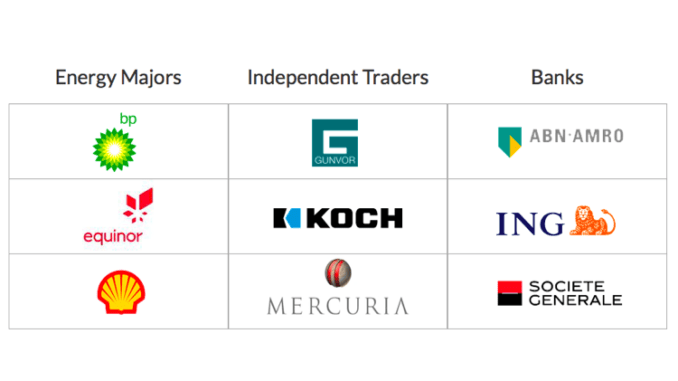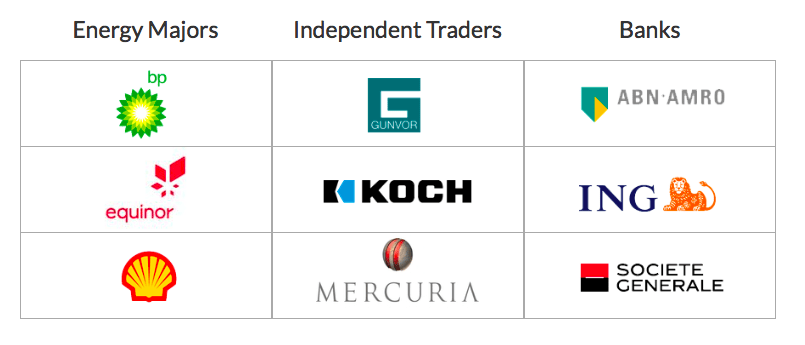
In what is an important sign of confidence in the value of blockchain technology, petroleum giants BP and Shell have backed the launch of VAKT, a fully operational, enterprise-grade blockchain platform focused on oil trading and transaction settlement.
Blockchain tech has seen a lot of pilots and a lot of experiments, but very few projects have become working realities with major corporates putting significant amounts of money on the line. VAKT does appear to be different in that not only are giant companies such as BP and Shell using it, they are also supporting it financially. Other backers include: ING, ABN AMRO, Koch and Societe Generale.

This type of scenario, where you have an entire ecosystem of businesses, in this case banks, commodity traders and oil companies, all working together across a blockchain system, is exactly what many have believed is the key to real world roll-out.
This is because without a true commercial ecosystem moving onto a blockchain platform then there was little substance to the experiments, even if they worked in principle. I.e. people had to be really risking money, then finding that it worked, and then establishing that platform as a standard that everyone can have confidence in.
In this case VAKT has created a secure, real-time blockchain-based digital platform, working with global software consultancy ThoughtWorks and underpinned by JP Morgan’s Quorum private distributed ledger – which is an enterprise-focused version of Ethereum.
The platform manages physical energy transactions from trade entry to final settlement, eliminating reconciliation and paper-based processes. In particular it is focused on Brent Crude, the output from the North Sea region, where BP and Shell operate.
The platform also plans to add new capabilities in the future, including the use of smart contracts.
All of this is useful to the commodities sector because of several factors: current paperwork and messy, siloed stores of trading information cause additional costs for traders, which slows things down and is inefficient, and the old approach also leaves parties exposed to fraud in what is a multi-billion dollar industry.
Oil trading is also an area where there are multiple parties all over the world taking part and everyone is only able to keep tabs on certain aspects of all the data related to the goods and the transactions. In short, it’s a bit of an archaic, piecemeal system.
The VAKT system provides a platform that all the participants can use to store key trading data and to rely upon as a single source of truth, which is far more protected from fraud. It may not matter to the participants that this is a blockchain solution, the real issue is that multiple parties are really using it and that it works.
VAKT says of itself: ‘[This] is a single source of the truth for the trade lifecycle. It will eliminate reconciliation and paper-based processes, enhance efficiency and create new trade finance opportunities.’
It also indirectly means that lawyers involved in disputes or contractual work around oil trading will need to understand how this system works, as at some point they will be called in to help on a matter that has run through the VAKT system.
For now BP, Equinor, Shell, Gunvor and Mercuria have launched privately as VAKT’s first users, running in parallel with their internal systems, with the platform set to open to the wider market in January.
The company added that: ‘Although the initial launch is limited to trade specifically in BFOET (Brent Crude) oil contracts, VAKT’s ambition is to extend the platform to all physically traded energy commodities. The company is building its roadmap in response to industry need, but has US crude oil pipelines and Northern Europe refined product barges slated for launch in early 2019.’
If the company can indeed add in the US then that would be a further watershed moment.
John Jimenez, VAKT interim CEO, said: ‘We’ve been overwhelmed by the strength of response to the VAKT concept. Launching into our first market with such high-calibre first users is a transformational moment for us and the industry. But it’s just the start: success for a blockchain solution depends on widespread adoption and we’re looking forward to seeing the ecosystem grow.’
And perhaps most importantly, Eren Zekioglu, Chief Operations & IT Officer, Gunvor – one of the shareholders and a huge global commodity trading group, said: ‘To be great, a trading company needs two things: good technology and speed. By radically streamlining post-trade processes, VAKT offers both. I see VAKT becoming the industry standard.’
The latter comment is the key one: industry standard.
Of course, we have been here before in terms of theorised applications. But, this does seem real. The players involved are among the top corporates and banks out there, and even the blockchain is derived from one of the world’s top investment banks, JP Morgan. In short, this looks like the real deal.
Last word goes to Shell’s Andrew Smith, EVP Trading & Supply, who concludes: ‘[This] is the best way to combine market expertise and achieve the scale necessary to launch a digital transaction platform.’
Below is a short video of what VAKT is doing. It also helps to explain a bit about the world of oil trading and why blockchain tech is helpful in this area.